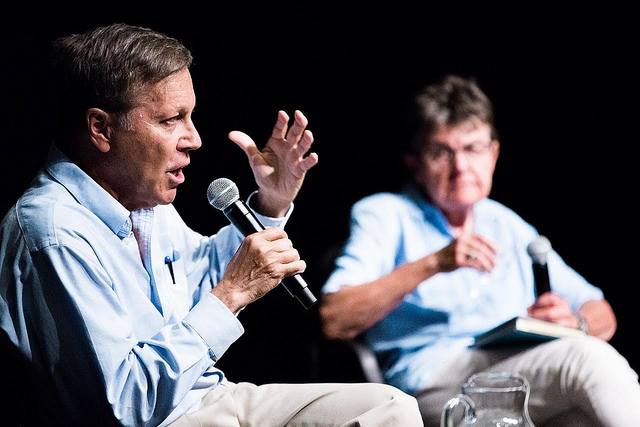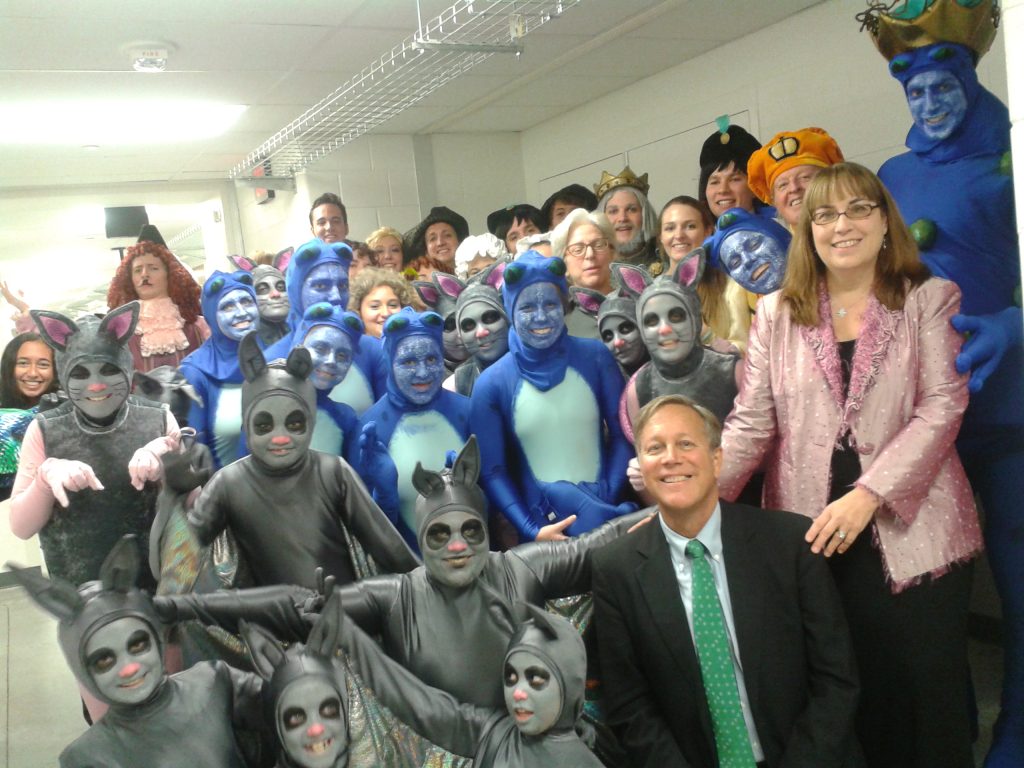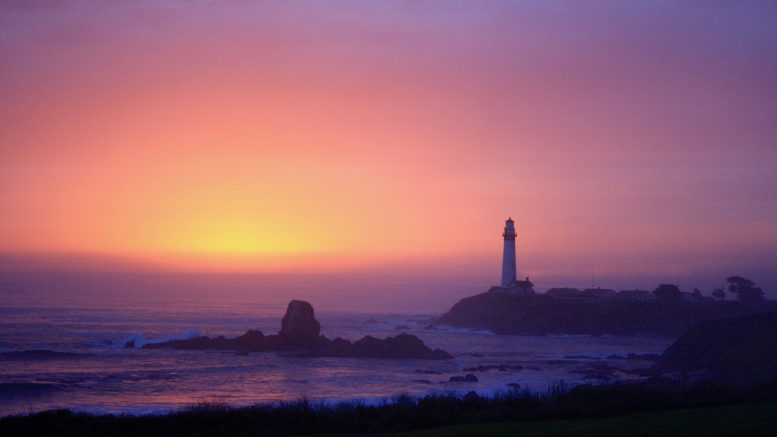Gioia’s co-production of ‘The Three Feathers’ will premier Sept. 8 and 10 at the Lesher Center for the Arts in Walnut Creek
By Scott Thomas Anderson
To descend into the underworld of California’s literary past, the only Virgil for guiding one through its sun-blinding rungs and neon-shaded specters would be Dana Gioia, a poet whose creative soul is arguably more entwined with the fabric of the Golden State than any writer working today.
Gioia is the winner of the American Book Award who led a crusade across the U.S. to save reading in an era of digitized attention-assault. Though internationally hailed for the power of his words, the former California Poet Laureate has released a new collection with its gaze fixed entirely on the native soil that’s always sustained him.
“Meet Me at The Lighthouse,” published by Greywolf Press, is a difficult book to describe when it comes to the West Coast identity: Its verses sing with harmonies reminiscent of the Beach Boys’ “Pet Sounds”; its images are sketched in the chalky brightness of a Wayne Thiebaud painting; and its invocations of streets and stars have a reimagined force to what Howard Hawks caught on film with “The Big Sleep.” It is, more than anything, the poetry of California.
Gioia started writing pieces for “Meet Me at the Lighthouse” after finishing up his stressful but productive stint as Chair of the National Endowment of the Arts in 2009. Gioia had been thinking and charming his way through political minefields so that Congress would fund programs to connect underserved children, isolated communities and struggling veterans with a love of literature. A few weeks ago, best-selling author and linguist John McWhorter mentioned Gioia’s influence on this front in The New York Times, writing that the poet’s most famous essay had forced Academia to reckon with its own toxic gate-keeping.
“In 1991, Dana Gioia’s renowned essay ‘Can Poetry Matter?’ made a powerful case that poetry had entered an eclipse, from a staple of our national culture to a boutique concern cherished by a rarefied few,” McWhorter noted in the pages of The Times. “Gioia was on to something. For most of our national history, schoolchildren memorized poetry and eventually became grandparents able to recite long passages of verse … But fast-forward to what Gioia was referring to. As a kid in the 1970s, even one attending private schools, I was directed to drive by poetry slowly now and then, but rarely to actually stop and take it in deeply.”

Reading and literary engagement did improve by some metrics in the U.S. after Gioia’s battles at the NEA. The earliest poems in “Meet Me at the Lighthouse” were the result of his escaping that drama – and the urban core of Washington D.C. where he’d been professionally trapped for over eight years. Once back in California, Gioia split his time between the north and south, spending half the seasons at his hilltop home in rural Sonoma and the rest of the year teaching at USC. The latter brought him back to the avenues of Los Angeles where he had grown up. It was the first time Gioia really lived there since 1975. That’s when the calling of “Meet Me at the Lighthouse” gained steam.
“When I finally got back, I saw California differently,” Gioia told SN&R this week. “First of all, I myself was older. Secondly, California was in the process of changing … So, a lot of the poems are about going back to older places like the Lighthouse. Part of the book is about how my childhood world has passed, including the people who were in that world. There’s a poem about my mother. There’s a poem about my best friend and cousin who lived next door, who is the unnamed ghost in ‘Meet Me at the Lighthouse.’ There’s a poem called ‘Seaward’ about my Mexican uncles, who were in the U.S. Navy and the Merchant Marine during World War II.”
He added, reflectively, “It’s a book full of ghosts – my family ghosts. But I should say that I like these ghosts. They don’t scare me, though, nonetheless, they haunt me.”
Some of the most coastally resonating verses in “Lighthouse” actually constitute lyrics Gioia wrote for the award-winning jazz pianist Helen Sung and her 2018 album “Sung with Words.” Gioia set lyrics down for three of Sung’s compositions before getting urged by his own fans to include them in his new book. For his part, Gioia – whose brother is the highly regarded music critic Ted Gioia – has collaborated with performers in different ways for most of his writing career.
“One of the things I like about working with musicians is they prompt you to create poems that are entirely different from what you normally would do,” Gioia observed.
He points to his piece “Hot Summer Night,” the lines of which Sung channeled into a live-wire arrangement that accompanying vocalists then piped over her pulsating piano runs on “Sung with Words.” Yet, when Gioia cracks open the spine to “Lighthouse” to recite those same stanzas, the result is a thematically similar, but entirely different effect.
“That’s a poem I never would have written in my normal literary mode,” he acknowledged. “But Helen Sung wanted an upbeat, sort of Latin number, and that’s what happened … I love the process of collaboration, because I think it expands and guides one’s creativity.”

One of Gioia’s most recent musical collaborations will go live on Sept. 8 and 10 at the Lesher Center for the Arts in Walnut Creek: That is the opera “The Three Feathers,” which was composed by Lori Laitman and has the libretti written by Gioia. Based on an obscure Grimm’s fairytale, its stage action is split between the palace of an aging king with three daughters and the underworld that’s ruled by the King of the Frogs. Gioia and Laitman were originally asked to create “The Three Feathers” for inaugurating a new opera house that opened at Virginia Tech University. The pair have now arraigned a scaled-down version of it that will use some 40 musicians and performers at its Northern California debut. When it comes to the opera’s depiction of the Frog King’s court, the rats, bats, snakes and frogs will be portrayed by the young ladies of the San Francisco Girls Chorus.
For Gioia, it’s all part of an ongoing effort to make poetry, literature and the arts more ever-present and accessible in the lives of the next generation.
“I tried to write a libretto that was exciting, suspenseful and charming,” he recalled. “I love writing poems that take poetry off the page.”
Scott Thomas Anderson is also the host of the ‘Drinkers with Writing Problems’ podcast, Episode 4 of which, “Los Angeles and Old Hollywood,” features Dana Gioia as one of its commentators.


A talented family: his brother Ted Gioia is a writer on musical matters of great depth as well:
Here he is telling us about his brother Dana:
https://www.honest-broker.com/p/i-need-to-tell-you-about-my-interesting